Dominant-party system
| Part of the Politics series | ||||||
| Party politics | ||||||
|---|---|---|---|---|---|---|
| Political spectrum | ||||||
|
||||||
| Party platform | ||||||
|
|
||||||
| Party system | ||||||
|
|
||||||
| Coalition | ||||||
|
|
||||||
| Lists | ||||||
| Politics portal | ||||||
A dominant-party system, or one-party dominant system, is a system where there is "a category of parties/political organisations that have successively won election victories and whose future defeat cannot be envisaged or is unlikely for the foreseeable future."[1] Many are de facto one-party systems, and often devolve into de jure one-party systems. Usually, the dominant party consistently holds majority government, without the need for coalitions.
Examples commonly cited include: United Russia (CP) in Russia, the Justice and Development Party (AKP) in Turkey, Serbian Progressive Party (SNS) in Serbia, Democratic Party of Socialists of Montenegro (DPS) in Montenegro, the People's Action Party (PAP) in Singapore, the African National Congress (ANC) in South Africa, the Liberal Democratic Party in Japan, Awami League in Bangladesh, MPLA in Angola and the ZANU-PF in Zimbabwe.[1]
Historical overview
Opponents of the "dominant party" system or theory argue that it views the meaning of democracy as given, and that it assumes that only a particular conception of representative democracy (in which different parties alternate frequently in power) is valid.[1] One author argues that "the dominant party 'system' is deeply flawed as a mode of analysis and lacks explanatory capacity. But it is also a very conservative approach to politics. Its fundamental political assumptions are restricted to one form of democracy, electoral politics and hostile to popular politics. This is manifest in the obsession with the quality of electoral opposition and its sidelining or ignoring of popular political activity organised in other ways. The assumption in this approach is that other forms of organisation and opposition are of limited importance or a separate matter from the consolidation of their version of democracy."[1]
One of the dangers of dominant parties is "the tendency of dominant parties to conflate party and state and to appoint party officials to senior positions irrespective of their having the required qualities."[1] However, in some countries this is common practice even when there is no dominant party.[1] In contrast to one-party systems, dominant-party systems can occur within a context of a democratic system. In a one-party system other parties are banned, but in dominant-party systems other political parties are tolerated, and (in democratic dominant-party systems) operate without overt legal impediment, but do not have a realistic chance of winning; the dominant party genuinely wins the votes of the vast majority of voters every time (or, in authoritarian systems, claims to). Under authoritarian dominant-party systems, which may be referred to as "electoralism" or "soft authoritarianism", opposition parties are legally allowed to operate, but are too weak or ineffective to seriously challenge power, perhaps through various forms of corruption, constitutional quirks that intentionally undermine the ability for an effective opposition to thrive, institutional and/or organizational conventions that support the status quo, occasional but not omnipresent political repression, or inherent cultural values averse to change.
In some states opposition parties are subject to varying degrees of official harassment and most often deal with restrictions on free speech (such as press club), lawsuits against the opposition, and rules or electoral systems (such as gerrymandering of electoral districts) designed to put them at a disadvantage. In some cases outright electoral fraud keeps the opposition from power. On the other hand, some dominant-party systems occur, at least temporarily, in countries that are widely seen, both by their citizens and outside observers, to be textbook examples of democracy. The reasons why a dominant-party system may form in such a country are often debated: Supporters of the dominant party tend to argue that their party is simply doing a good job in government and the opposition continuously proposes unrealistic or unpopular changes, while supporters of the opposition tend to argue that the electoral system disfavors them (for example because it is based on the principle of first past the post), or that the dominant party receives a disproportionate amount of funding from various sources and is therefore able to mount more persuasive campaigns. In states with ethnic issues, one party may be seen as being the party for an ethnicity or race with the party for the majority ethnic, racial or religious group dominating, e.g., the African National Congress in South Africa (governing since 1994) has strong support amongst Black South Africans, the Ulster Unionist Party governed Northern Ireland from its creation in 1921 until 1972 with the support of the Protestant majority.
Sub-national entities are often dominated by one party due the area's demographic being on one end of the spectrum. For example, the current elected government of the District of Columbia has been governed by Democrats since its creation in the 1970s, Bavaria by the Christian Social Union since 1957, and Alberta by Progressive Conservatives 1971–2015. On the other hand, where the dominant party rules nationally on a genuinely democratic basis, the opposition may be strong in one or more subnational areas, possibly even constituting a dominant party locally; an example is South Africa, where although the African National Congress is dominant at the national level, the opposition Democratic Alliance is strong to dominant in the Province of Western Cape.
Examples
Current dominant-party systems
Africa

- National Liberation Front (FLN)[2]
- In power since independence in 1962, sole legal party 1962–1989
- Led by President Abdelaziz Bouteflika, in office since 27 April 2005
- Presidential election, 2014: Abdelaziz Bouteflika (FLN) elected with 81.53% of the vote
- Parliamentary election, 2017: FLN 25.99% and won 164 of 462 seats
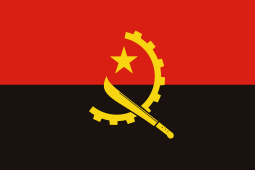
- Popular Movement for the Liberation of Angola, Movimento Popular de Libertação de Angola (MPLA)[3][4]
- In power since independence, 11 November 1975; sole legal party, 1975–91
- Formerly led by President José Eduardo dos Santos (in office since 10 September 1979 to 28 August 2017) and now led by João Lourenço.
- Presidential election, 1992: dos Santos (MPLA-PT) won 49.6% of the vote. As this was not an absolute majority, a runoff against Jonas Savimbi (40.1%) was required, but did not take place. Dos Santos remained in office without democratic legitimacy.
- New constitution, 2010: popular election of president abolished in favour of a rule that the top candidate of the most voted party in parliamentary elections becomes president.
- Parliamentary election, 2017: MPLA 61.11% and 150 of 220 seats.

- Botswana Democratic Party (BDP)[5]
- Led by President Mokgweetsi Masisi, in office since 1 April 2018
- In power since independence in 1966,[6] first elected 3 March 1965
- Parliamentary election, 2014: BDP 46.5% and 37 of 57 seats
- Local elections, 2009: BDP 333 of 490 seats

- National Council for the Defense of Democracy-Forces for the Defense of Democracy (CNDD-FDD)
- In power since 2005
- Led by President Pierre Nkurunziza, in office since 26 August 2005
- Presidential election, 2015: CNDD-FDD 69.41%
- Constitutional Referendum, 2018: 79.08%

- Cameroon People's Democratic Movement (Rassemblement Démocratique et Populaire du Cameroun, RDPC)
- Led by President Paul Biya, in office since 6 November 1982
- In power, under various names, since independence, 1 January 1960 (Sole legal party, 1966–1990)
- Presidential election, 2011: Paul Biya (RDPC) 77.99%
- Parliamentary election, 2013: RDPC 148 of 180 seats

- Patriotic Salvation Movement (Mouvement Patriotique de Salut de SMPS)
- Led by President Idriss Déby Itno, in office since 2 December 1990
- In power since 2 December 1990
- Presidential election, 2016: Idriss Déby (MPS) 59.92%
- Parliamentary election, 2011: MPS 110 of 155 seats
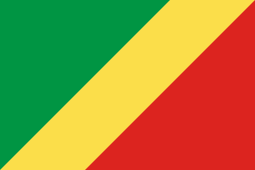
- Congolese Party of Labour (Parti Congolais du Travail, PCT)
- Led by President Denis Sassou-Nguesso, in office from 8 February 1979 to 31 August 1992 and since 15 October 1997
- In power, under various names, from 1963 to 1992 and since 1997 (Sole legal party, 1963–1990)
- Parliamentary election, 2012: PCT 89 of 139 seats
- Presidential election, 2016: Denis Sassou-Nguesso (PCT) 60.19%

- People's Rally for Progress (Rassemblement Populaire pour de Progrès, RPP)
- Led by President Ismail Omar Guelleh, in office since 8 May 1999
- In power since its formation in 1979 (Sole legal party, 1979–1992)
- Parliamentary election, 2018: RPP in coalition, 87.83% and 57 of 65 seats
- Presidential election, 2016: Ismail Omar Guelleh (RPP) 87.07%

- Democratic Party of Equatorial Guinea (Partido Democrático de Guinea Ecuatorial, PDGE)
- Led by President Teodoro Obiang Nguema Mbasogo, in office since 3 August 1979
- In power since its formation in 1987 (Sole legal party, 1987–1991)
- The government's support for the Constitutional referendum, 2011: 97.73%
- Senate election, 2017: PDGE 92.00% 55 of 70 seats (Includes 15 unelected representatives appointed by the president.)
- Chamber of People's Representatives election, 2017: PDGE 92.00% 99 of 100 seats
- Presidential election, 2016: Teodoro Obiang Nguema Mbasogo (PDGE) 93.53%
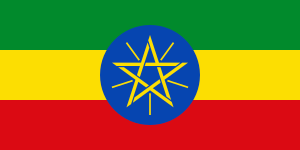
- Ethiopian People's Revolutionary Democratic Front (EPRDF)
- Led by Prime Minister Abiy Ahmed, in office since 2 April 2018
- In power since 28 May 1991
- Parliamentary election, 2015: 500 of 547 seats (546 of 547 seats including allies)
- Regional election, 2015: Regional partners 1987 of 1990 seats
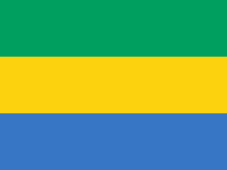
- Gabonese Democratic Party (Parti Démocratique Gabonais, PDG)
- Led by President Ali Bongo Ondimba, in office since 16 October 2009
- In power, under various names, since 28 November 1958 (Sole legal party, 1968–1991)
- The government's support for the Constitutional referendum, 1995: 96.5%
- Parliamentary election, 2011: PDG 113 of 120 seats (118 of 120 seats including allies)
- Presidential election, 2016: Ali Bongo Ondimba 49.8%
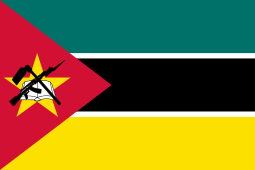
- Mozambican Liberation Front (FRELIMO)
- Led by President Filipe Nyusi, in office since 15 January 2015
- In power since independence, 25 June 1975 (Sole legal party, 1975–1990)
- Presidential election, 2014: Filipe Nyusi (FRELIMO) 57.03%
- Parliamentary election, 2014: FRELIMO 55.93% and 144 of 250 seats

- South West Africa People's Organisation (SWAPO)
- Led by President Hage Geingob, in office since 21 March 2015
- In power since independence, 21 March 1990
- Presidential election, 2014: Hage Geingob (SWAPO) 86.73%
- Parliamentary election, 2014: SWAPO 77 of 104 seats
- Local elections, 2015: SWAPO 112 of 121 seats
- Regional elections, 2015: SWAPO 277 of 378 seats
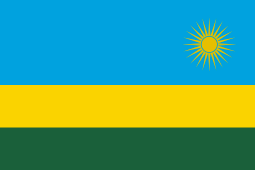
- Rwandan Patriotic Front (RPF)
- Led by President Paul Kagame, in office since 24 March 2000
- In power since 19 July 1994
- Presidential election, 2017: Paul Kagame (RPF) 98.79%
- Parliamentary election, 2013: RPF 76.22% and 41 of 80 seats
- The government's support for the Constitutional referendum, 2015: 98.3%

- African National Congress (ANC)
- Led by President Cyril Ramaphosa, in office since 15 February 2018
- In power since 10 May 1994
- Parliamentary election, 2014: ANC 62.15% and 249 of 400 seats
- Municipal elections, 2016: ANC 53.91%
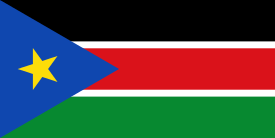
- Sudan People's Liberation Movement (SPLM)
- Led by President Salva Kiir Mayardit, in office since 9 July 2011; and was President of Southern Sudan since 30 July 2005
- In power since independence, 9 July 2011; and in the autonomous Government of Southern Sudan since formation, July 9, 2005
- Presidential election, 2010: Salva Kiir Mayardit (SPLM) 92.99%
- Parliamentary election, 2010: SPLM 160 of 170 seats

- National Congress (NC)
- Led by President Omar Hassan Ahmad al-Bashir, in office since 30 June 1989
- In power since its formation, 16 October 1993
- Council election, 2010: NC 25 of 50 seats
- Presidential election, 2015: Omar Hassan Ahmad al-Bashir (NC) 94.05%%
- Parliamentary election, 2015: NC 83.4% and 323 of 426 seats
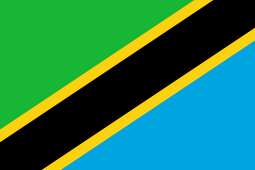
- Chama Cha Mapinduzi (CCM)
- Led by President John Magufuli, in office since 5 November 2015
- In power, under various names, since independence, 9 December 1961 (Sole legal party, 1964–1992)
- Civic election, 2014: CCM 74.50%
- Presidential election, 2015: John Magufuli (CCM) 58.46%
- Parliamentary election, 2015: CCM 252 of 367 seats
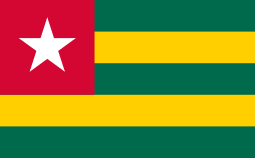
- Union for the Republic (UNIR)
- Led by President Faure Gnassingbé, in office since 5 February 2005
- In power since its formation in 2012
- Presidential election, 2015: Faure Gnassingbé (UNIR) 58.75%
- Parliamentary election, 2013: UNIR 62 of 91 seats

- National Resistance Movement (NRM)
- Led by President Yoweri Museveni, in office since 29 January 1986.
- In power as de facto dominant party since 29 January 1986 as a "non-party Movement."
- Became de jure dominant party with the return of multi-party elections on 28 July 2005.
- Presidential election, 2016: Yoweri Museveni (NRM) 60.62%
- Parliamentary election, 2016: NRM 293 of 426 seats

- The Polisario Front is the only political party represented in the government in exile of the Sahrawi Arab Democratic Republic (headquartered in neighbouring Algeria)
- Legislative election, 2012: 53 of 53 Seats
- Other parties are permitted in the Sahrawi constitution, but currently none exist
- The United Nations has designated the Polisario Front to be the sole legitimate representative of the Sahrawi people[8]
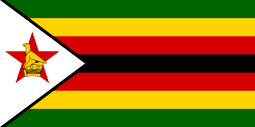
- Zimbabwe African National Union – Patriotic Front (ZANU-PF)
- Formerly led by President Robert Mugabe, in office from 18 April 1980 to 21 November 2017 (as president since 31 December 1987) and now led by Emmerson Mnangagwa since 24 November 2017.
- In power since independence, 17 April 1980
- Presidential election, 2018: Emmerson Mnangagwa (ZANU-PF) 50.8%
- House of Assembly election, 2018: ZANU-PF 179 of 270 elective seats
- Senate election, 2018: ZANU-PF 43.8% and won 34 of 80 elective seats
- The government's support for the Constitutional referendum, 2013: 94.49%
Americas

- The Barbuda People's Movement has ruled the island of Barbuda since 1979, and has won every election for the island's seat in the national House of Representatives.
- General election, 2018: ALP 59.24% and won 15 of 17 seats
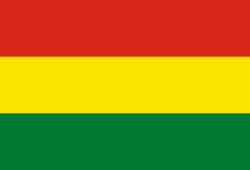
- Movement for Socialism (Bolivia)
- Led by Evo Morales, in power since 2005
- 2014 Election: 61.36%
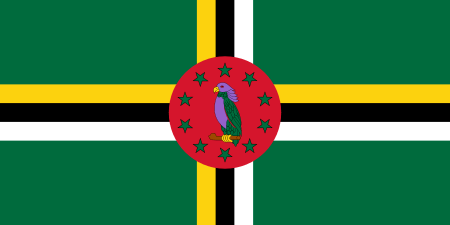
- Dominica Labour Party
- Led by Roosevelt Skerrit and Charles Savarin
- In power since 2000
- Dominican general election, 2009: 61.34%

- FSLN
- Presidency since 2007 (and 1979–1990) mayor of every major city, including Managua, majorities in most departments.
- Local elections, 2012: 75,7% and 127 of 153 seats
- General election, 2016: Daniel Ortega 72.5%
- National election, 2016: 66.8%
- Constituency election, 2016: 65.7%
- Central American Parliament, 2016: 68.6%

- ANR-Colorado party
- Led by Horacio Cartes
- In power since 1886–1904, 1912, 1948–2008, 2013–present
- Paraguayan general election, 2018: 48.96%, Mario Abdo Benítez

- United Socialist Party of Venezuela led Great Patriotic Pole
- In power since 1999, led by Hugo Chavez, then Nicolás Maduro
- Venezuelan Constituent Assembly election, 2017: won 538 of 545 seats
- Venezuelan regional elections, 2017: 52.7%
- Venezuelan municipal elections, 2017: 91.04%
- Venezuelan presidential election, 2018: 67.8%
Canada
Federally, a multi-party system exists, although only two federal parties have ever held power, the Conservative Party and the Liberal Party. However, in some provinces, a party holds hegemonic status over all other parties.

- Senate nominee election, 2012: 40.47% and won 3 of 3 seats
- Canadian federal election, 2015: Tories 59.5% and won 29 of 34 seats
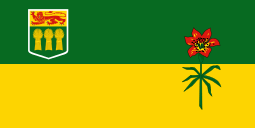
- Canadian federal election, 2015: Tories 48.5% and won 10 of 14 seats
- General election, 2016: 62.36% and won 51 of 61 seats
United States
As a whole, the nation has a two-party system, with the main parties since the mid-19th century being Democratic Party and the Republican Party. However, some states and cities have been dominated by one of these parties for up to several decades. Generally, the Democratic Party dominate in the urban metropolitan areas, while the Republican Party dominate in the rural areas. Since 2010, majority of the states are dominated by the Republican Party. With control in both the Senate and House of Representatives, and Donald Trump's victory in the 2016 elections, the Republican Party dominate in both federal and state levels.
Dominated by the Democratic Party:
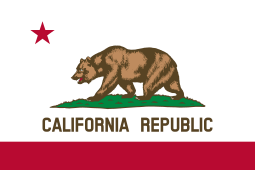
- United States presidential election, 2016: Hillary Clinton (Democratic) 61.73% and won 55 electoral votes
- United States Senate election, 2016: Democrats 61.6%
- State Assembly election, 2016: Democrats 61.08% and won 55 of 80 seats
- United States House of Representatives elections Democrats 63.91% and won 39 of 53 seats
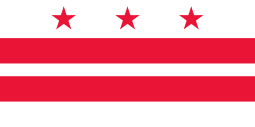
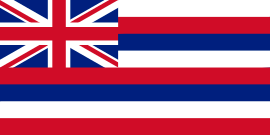

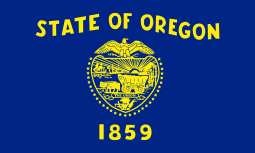

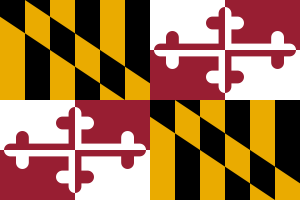
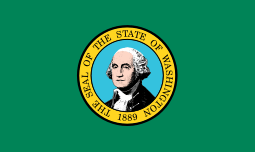
Dominated by the Republican Party:
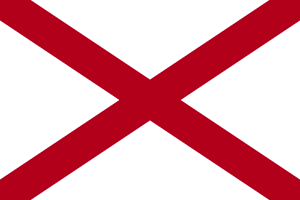
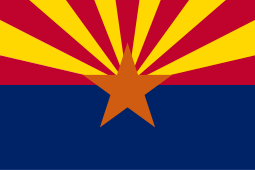
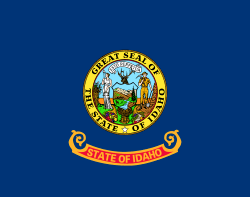
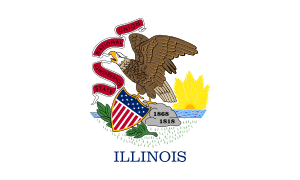
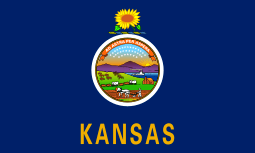
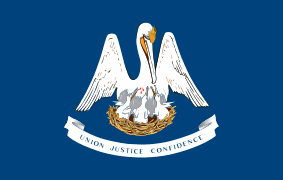
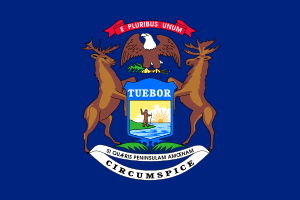
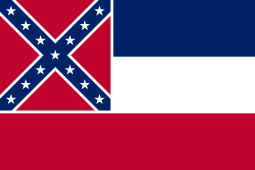
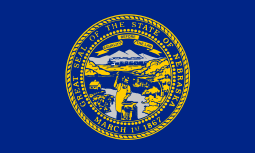
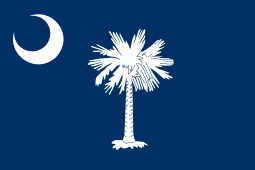
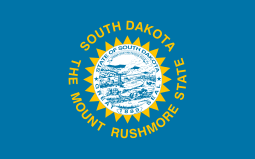
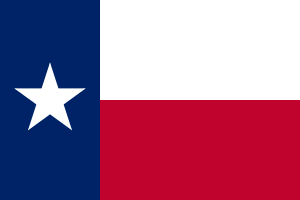

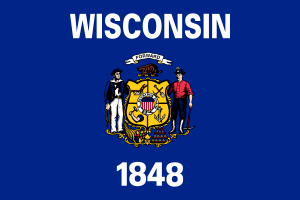
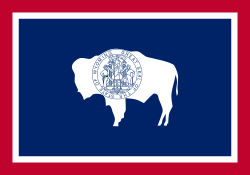
Dominant-party systems can also exist on native reservations with republican forms of government. The Seneca Nation of Indians, a tribe with territory within the bounds of New York State, has had the Seneca Party as the dominant party in its political system for several decades.
Asia and Oceania

- Awami League (AL)
- Led by Prime Minister Hasina Wazed, in office since 6 January 2009
- In power since 2008
- Bangladeshi general election, 2014: 79.14% and 276 of 350 seats
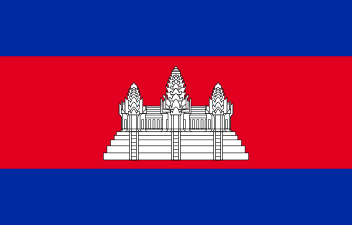
- Cambodian People's Party
- Led by Prime Minister Hun Sen, in office since 14 January 1985
- In power since 1993 (sole legal party 1979–1992)
- Cambodian communal elections, 2017: 50.76% and 6,503 of 11,572 councillors
- Cambodian Senate election, 2018: 95.95% and 58 of 58 seats
- Cambodian general election, 2018: 76.85% and 125 of 125 seats

- Liberal Democratic Party (LDP)
- Led by Prime Minister Shinzō Abe, in office since 26 December 2012.
- In power 1955–1993, 1994–2009 and since 2012 (governed in coalition with Komeito since 1999 in order to maintain Supermajority)
- Parliamentary election 2017: LDP 284 of 465 seats (Governing coalition 313 of 465 seats).

- Human Rights Protection Party (HRPP)
- Led by Prime Minister Tuila'epa Sailele Malielegaoi, in office since 23 November 1998
- In power since 1982
- General election, 2016: HRPP 56.92% 35 of 50 seats

- People's Action Party (PAP)
- Led by Prime Minister Lee Hsien Loong, in office since 12 August 2004
- In power since 3 June 1959[12]
- Parliamentary election, 2015: PAP won 69.9% of the popular vote and 83 out of 89 seats[13]
- Bukit Batok by-election, 2016: 61.2%
- Presidential election, 2017: Former PAP member Halimah Yacob won (only candidate)[A]

- The liberal Democratic Party of Korea has dominated in the Jeolla Province
- The conservative Liberty Korea Party has dominated in the Gyeongsang Province

- National Progressive Front (NPF), a coalition of 10 parties led by the Arab Socialist Ba'ath Party – Syria Region (Baath Party)
- Led by President Bashar al-Assad, in office since 17 July 2000
- In power since 8 March 1963
- Presidential election, 2014: Bashar al-Assad 88.7%
- Parliamentary election, 2016: Baath Party won 134 of 250 seats (National Progressive Front 200 of 250)

- The Democratic Progressive Party (DPP) dominate politics in Southern Taiwan since the mid-1990s
- The Kuomintang (KMT) dominate politics in Northern Taiwan, Hualien and Taitung since 1945
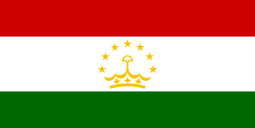
- People's Democratic Party of Tajikistan is headed by President Emomalii Rahmon
- In power since 1994
- Presidential election in 2013 won by Emomali Rahmon 83.92%.
- Since the Parliamentary election in 2015 holds 51 seats in Assembly of Representatives.
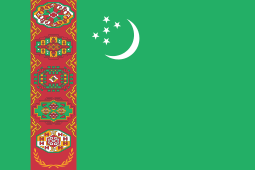
- Democratic Party of Turkmenistan is headed by Kasymguly Babaev since 18 August 2013.
- Presidential election in 2017 won by Gurbanguly Berdimuhammedow 97.69%.
- Parliamentary election, 2018: 55 of 125 seats in the Assembly of Turkmenistan.
- In power since the Independence 1990 or 1920 (as Communist Party of Turkmenistan)
- Until 2012 it was the sole legal party in Turkmenistan.

- General People's Congress (GPC)
- Since 2012 led by President Abd Rabbuh Mansur Hadi
- In power since the unification of North Yemen (since 1982) and South Yemen in 1990
- Presidential Election, 2012: Abd Rabbuh Mansur Hadi (GPC) 100%
- Parliamentary Election, 2003: GPC 58.0% and 238 out of 301 seats
Eurasia

- The Republican Party of Armenia is the dominant party in Armenia since the election of Robert Kocharyan as President, continuing under his successor Serzh Sargsyan. (except from 2018)
- Presidential election, 2013: Serzh Sargsyan 58.64%
- Local elections, 2016: 52.09%
- The government's support for the Constitutional referendum, 2015: 66.20%
- Parliamentary election, 2017: 49.17% and 58 of 101 seats

- New Azerbaijan Party (YAP) has been in power essentially continuously since 1993.
- Parliamentary election, 2015: 47.20% and 69 of 125 seats
- The government's support for the Constitutional referendum, 2016: 89% and 95%
- Presidential election, 2018: Ilham Aliyev 86.02%

- Nur Otan is headed by President Nursultan Nazarbayev since 4 July 2007.
- Since last parliamentary election in 2016: 82.20% and holds 84 of 107 seats in the Majilis.
- Presidential election in 2015 won by Nursultan Nazarbayev 97,75%.

- Justice and Development Party
- Led by Recep Tayyip Erdoğan (President 2014-present, Prime Minister 2003-2014)
- In power since 2002
- Local elections, 2014: 42.87%
- The government's support for the Constitutional referendum, 2017: 51.41%
- Presidential election, 2018: Recep Tayyip Erdoğan 52.59%
- Parliamentary election, 2018: 42.56% and 295 of 650 seats

- United Russia
- Led by Prime Minister Dmitry Medvedev and President Vladimir Putin (2000-2008, 2012-present, Prime Minister 1999-2000, 2008-2012)
- In power since 2000
- Presidential election, 2018: Vladimir Putin 76.7%
- Parliamentary election, 2016: 54.20% and 343 of 450 seats
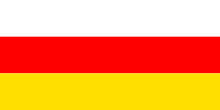
- United Ossetia
- Led by Anatoliy Bibilov
- In power since 2014 (a continuation of the governing 2001–2014 Unity Party, now defunct)
- Parliamentary election, 2014: 44.84% and 20 of 34 seats
- Presidential election, 2017: Anatoliy Bibilov 54.80%
Europe


- Austrian People's Party
- Led by Johanna Mikl-Leitner, Governess (since 2017)
- In power since 1907 or 1945[B]
- Cisleithanian legislative election, 1911: CS 59.97%[17]
- Constitutional Assembly election, 1919: CS 40.91%[18]
- The government's support for the Austrian conscription referendum, 2013: 60.9%
- European Parliament election, 2014: ÖVP 33.0%
- The government's support for the 1st Second of the Presidential election, 2016: 47.35%
- The government's support for the 2nd Second of the Presidential election, 2016: 50.66%
- Austrian legislative election, 2017: ÖVP 35.60%
- State election, 2018: VPNÖ 49.64% and won 29 of 56 seats

- Austrian People's Party
- Led by Günther Platter, Governor (since 2008)
- In power since 1907 or 1945[B]
- Cisleithanian legislative election, 1911: CS 49.91%[19]
- Constitutional Assembly election, 1919: CS 61.00%[18]
- The government's support for the Austrian conscription referendum, 2013: 62.5%
- European Parliament election, 2014: ÖVP 32.4%
- The government's support for the 1st Second of the Presidential election, 2016: 51.39%
- The government's support for the 2nd Second of the Presidential election, 2016: 54.69%
- Austrian legislative election, 2017: ÖVP 38.42%
- Tyrolean state election, 2018: TVP 44.26%

- Social Democratic Party of Austria
- Led by Michael Häupl, Mayor (since 1994)
- In power since 1911 or 1945
- Cisleithanian legislative election, 1911: SDAPÖ 49.91%[20]
- Constitutional Assembly election, 1919: SDAPÖ 55.43%[18]
- The government's support for the Austrian conscription referendum, 2013: 53.9%
- European Parliament election, 2014: SPÖ 27.6%
- State election, 2015: SPÖ 39.59%
- The government's support for the 1st Second of the Presidential election, 2016: 63.32%
- The government's support for the 2nd Second of the Presidential election, 2016: 65.68%
- Austrian legislative election, 2017: SPÖ 34.49%

- Austrian People's Party
- Led by Markus Wallner, Governor (since 2011)
- In power since 1907 or 1945[B]
- Cisleithanian legislative election, 1911: CS 65.34%[21]
- Constitutional Assembly election, 1919: CS 61.99%[18]
- The government's support for the Austrian conscription referendum, 2013: 66.2%
- State election, 2014: VVP 41.79%
- European Parliament election, 2014: ÖVP 28.2%
- The government's support for the 1st Second of the Presidential election, 2016: 58.59%
- The government's support for the 2nd Second of the Presidential election, 2016: 62.53%
- Austrian legislative election, 2017: ÖVP 34.71%

- Austrian People's Party
- Led by Thomas Stelzer, Governor (since 2017)
- In power since 1907 or 1945[B]
- Cisleithanian legislative election, 1911: CS 61.40%[22]
- Constitutional Assembly election, 1919: CS 46.23%[18]
- The government's support for the Austrian conscription referendum, 2013: 62.5%
- European Parliament election, 2014: ÖVP 28.0%
- State election, 2015: OÖVP 36.37%
- The government's support for the 1st Second of the Presidential election, 2016: 51.32%
- The government's support for the 2nd Second of the Presidential election, 2016: 55.27%
- Austrian legislative election, 2017: ÖVP 31.45%


- Socialist Party (PS)
- In power since 2001

.svg.png)
- Christian Social Union in Bavaria (CSU)
- Led by Horst Seehofer, Minister-President (since 2008)
- In power since 1946, 1919 or 1869[C] (except for 1954–57)
- Zollparlament election, 1868: BPP 31.8% and 21 of 48 seats
- Kammer der Abgeordneten election, 1912: BZP 40.8% and 87 of 163
- Reichsrat election, 1912: BZP 40.8%
- Weimar National Assembly election, 1919: CVP 34.6%
- The government's support for the German referendum, 1926: 76.7% (Boycott and No)
- The government's support for the Presidential election, 1932: 61.2%
- Federal election, March 1933: BVP-Z 27.2%
- Landesversammlung election, 1946: CSU 58.3%
- State election, 2013: CSU 47.7% and 101 of 180 seats
- District elections, 2013: CSU 44.9 % and 89 of 195 seats
- Local elections, 2014: CSU 39.7% and 55 of 77 seats
- European Parliament election, 2014: CDU/CSU 40.5%
- German federal election, 2017: CDU/CSU 38.8% and won 46 of 115 seats
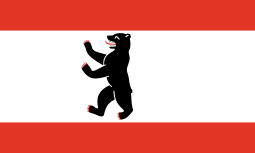
- Social Democratic Party of Germany (SPD) (in power since 2001)
- European Parliament election, 2014: CDU/CSU 30.6%
- State election, 2016: SPD 21.6% and 38 of 160 seats
- Borough elections, 2016: SPD 23.4 % and 169 of 660 seats
- Local elections, 2016: SPD 23.4%
- Came in third place in Berlin to the Christian Democratic Union and The Left in the German federal election, 2017 with 17.9% and won 5 of 28 seats

- Christian Democratic Union (CDU)
- In power since 1999
- State election, 2013: CDU 38.3% and 47 of 110 seats
- European Parliament election, 2014: CDU/CSU 30.6%
- Local elections, 2016: CDU 28.9%
- German federal election, 2017: CDU/CSU 30.9% and won 17 of 50 seats

- Christian Democratic Union (CDU)[23]
- In power since 1990
- Volkskammer election, 1990: Christian Democratic Union 43.5%
- State election, 2014: CDU 39.4%
- Local elections, 2014: CDU 36.1%
- European Parliament election, 2014: CDU/CSU 34.5%
- Came in second place in Saxony to the Alternative für Deutschland in the German federal election 2017 with 26.9% and won 12 of 28 seats
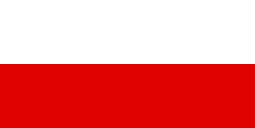
- Christian Democratic Union (CDU)
- In power since 1990 (except from 2014)
- Volkskammer election, 1990: Christian Democratic Union 54.1%
- State election, 2014: CDU 33.5%
- Local elections, 2014: CDU 35.0%
- European Parliament election, 2014: CDU/CSU 31.8%
- German federal election 2017: CDU/CSU 28.8% and won 8 of 22 seats

- Fidesz
- Led by Viktor Orbán, Prime Minister (since 2010)
- In power since 2010 (won in the European Parliament election, 2009)
- Presidential election, 2012: János Áder (Fidesz) 67.87%
- European Parliament election, 2014: Fidesz 51.48% and 12 of 21 seats
- Parliamentary election, 2014: Fidesz 44.87% and 133 of 199 seats
- The government's support for the Migrant quota referendum, 2016: 98.36%


- Democratic Party[24]
- In power since 1946
- Regional election, 2014: PD 44.5% and 31 of 50 seats
- European Parliament election, 2014: PD 52.5%
- The government's support for the Constitutional referendum, 2016: 50.4%
- Came in second place in Emilia-Romagna to the Five Star Movement in the Chamber of Deputies election, 2018: PD 26.4%
- Came in second place in Emilia-Romagna to the Five Star Movement in the Senate election, 2018: PD 26.3%

- Centre-right coalition
- In power since 1994
- Came in second place in Lombardy to the Democratic Party in the European Parliament election, 2014: FI+LN+FdI 34.3%
- The government's support for the Constitutional referendum, 2016: 55.5%
- The government's support for the Autonomy referendum, 2017: 95.3%
- Regional election, 2018: CDX 51.23% and won 49 of 80 seats
- Presidential election, 2018: Attilio Fontana 49.7%
- Chamber of Deputies election, 2018: CDX 46.9%
- Senate election, 2018: CDX 47.2%

- Democratic Party[24]
- In power since 1946 (except for 1953–1963)
- Regional election, 2015: PD 48.1% and 25 of 41 seats
- European Parliament election, 2014: PD 52.5%
- The government's support for the Constitutional referendum, 2016: 52.5%
- Chamber of Deputies election, 2018: PD 29.6%
- Senate election, 2018: PD 30.5%
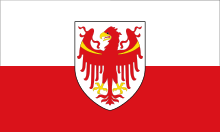
- South Tyrolean People's Party
- In power since 1948 (The German Association dominated from 1921 and before that it was part of Tyrol)
- Italian general election, 1924: German Association, part of Lists of Slavs and Germans 80%
- Provincial elections, 2013: SVP 45.7% and 17 of 35 seats
- European Parliament election, 2014: SVP 48.0%
- The government's support for the Constitutional referendum, 2016: 63.7%
- Chamber of Deputies election, 2018: SVP 48.8%
- Senate election, 2018: SVP 49.8%
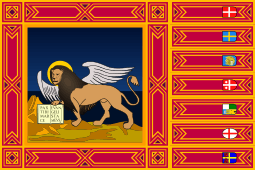
- Centre-right coalition
- In power since 1994
- Came in second place in Veneto to the Democratic Party in the European Parliament election, 2014: FI+LN+FdI 33.2%
- Regional election, 2015: CDX 52.2% and won 29 of 51 seats
- Presidential election, 2015: Luca Zaia 50.1%
- The government's support for the Constitutional referendum, 2016: 61.9%
- The government's support for the Autonomy referendum, 2017: 98.1%
- Chamber of Deputies election, 2018: CDX 48.1%
- Senate election, 2018: CDX 48.2%

- The Christian Social People's Party (CSV), with its predecessor Party of the Right, has governed Luxembourg continuously since 1915, except for 1974–1979 and from 2013. However, Luxembourg has a coalition system, and the CSV has been in coalition with at least one of the two next two leading parties for all but four years. It has always won a plurality of seats in parliamentary elections, although it lost the popular vote in 1964 and 1974.
- General election, 2013: CSV 33.68% and 23 of 60 seats
- European Parliament election, 2014: CSV 37.65% and 3 of 6 seats
- The CSV's support for the constitutional referendum, 2015: 80.87%, 78.02% and 69.93%
- Communal elections, 2017: CVP 30.4% and won 209 of 600 seats

- Democratic Party of Socialists of Montenegro, founded in 1943 as Communist Party of Montenegro, part of the Communist Party of Yugoslavia
- Led by Milo Đukanović, seven term former Prime Minister (1991–1993, 1993–1996, 1996–1998, 2003–2006, 2008–2009, 2009–2010, 2012–2016) and President (1998–2002, 2018-)
- In power since establishment of Communist rule in Montenegro/Yugoslavia in 1944/5 (Sole legal party, 1945–1990)
- The government's support for the Independence referendum, 2006: 55.5%
- Parliamentary election, 2016: DPS 41.1% and 35 of 81 seats
- Presidential election, 2018: Milo Đukanović (DPS), 53.90%


- Local elections, 2013: SDP 34.81%
- European Parliament election, 2014 (in Madeira): SDP 31.0%
- Regional election, 2015: SDP 48.56% and 25 of 47 seats
- Portuguese legislative election, 2015 (in Madeira): SDP 37.8% and 3 of 6 seats
- Portuguese abortion referendum, 2007 (in Madeira) (The SDP was neutral, but is divided, however, important members, including the then leader, Luís Marques Mendes, say NO) No: 65.40%

- The Sammarinese Christian Democratic Party (PDCS) have always had a plurality of seats in the Grand and General Council since 1951, However it has not consistently formed the government. Currently since 2016 it is in opposition
- General election, 2016: PDCS first round 24.46%, second round (in San Marino First alliance) 42.08%

- Serbian Progressive Party
- In power since 2012
- Led by Aleksandar Vučić, seven-term Prime Minister (2014-2017) and President (since 2017)
- Parliamentary election, 2016: SNS 48.25% and 93 of 250 seats
- Vojvodina parliamentary election, 2016: SNS 44.48% and 63 of 120
- Presidential election, 2017: Aleksandar Vučić, 55.06%


- Conservative Party
- Majority in England since 2010
- Leave support for the Brexit referendum, 2016: 53.4%
- Parliamentary election, 2017: Conservative 45.4% and won 296/97 of 533 seats
- Came in third place in England to the UK Independence Party and Labour Party in the European Parliament election, 2014 with 24.9% and won 17 of 60 seats
- European Parliament election, 2014: Conservative 29.0% and 2 of 6 seats
.svg.png)
- Welsh Labour Party
- In power in the devolved Welsh Assembly since 1999
- Led by Carwyn Jones, seven-term First Minister (since 2009)
- Parliamentary election, 2017: Welsh Labour 48.9% and 28 out of 40 seats
- National Assembly for Wales elections, 2016: Welsh Labour 34.7% and 29 of 60 seats
- Local elections, 2017: Welsh Labour 35.2% and 472 of 1271 seats
- The government's support for the Brexit referendum, 2016: 47.5%
- European Parliament election, 2014: Welsh Labour 28.15% and 1 of 4 seats

- Scottish National Party
- In devolved government since 2007 (minority government: 2007-2011, 2016-present)
- Led by Nicola Sturgeon, First Minister (since 2014)
- Parliamentary election, 2017: SNP 36.9% and 35 out of 59 seats
- Scottish Parliament election, 2016: SNP 46.5% and 63 of 129
- The government's support for the Brexit referendum, 2016: 62.0%
- European Parliament election, 2014: SNP 29.0% and 2 of 6 seats
Former dominant parties
North America

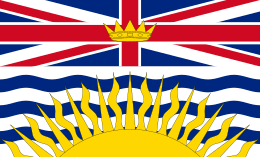



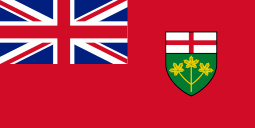



- During the "Era of Good Feelings," the Democratic-Republican Party dominated national politics with no effective opposition from the Federalist Party or any third parties, allowing James Monroe to run unopposed in the 1820 presidential election. This dominance continued until the rise of the American Whig Party circa 1830.
- From 1955 to 1981, the Democratic Party held a majority in both Houses of Congress.
- New England:
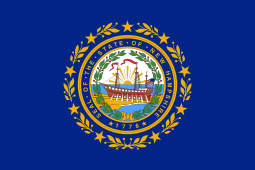
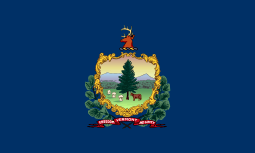
- Southern United States:
- The South (usually defined as coextensive with the former Confederacy) was known until the era of the civil rights movement as the "Solid South" due to its states' reliable support the then-conservative Democratic Party. Several states had an unbroken succession of Democratic governors for half a century to over a century.

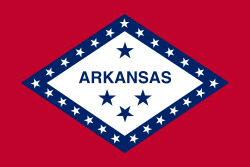
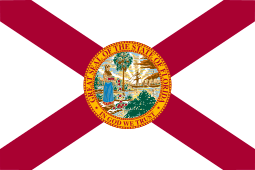
.svg.png)


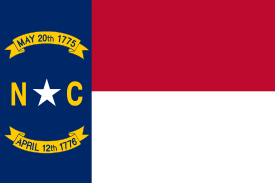





- During and after that movement, however, factors such as the national Democratic Party's support for the civil rights movement and the national Republican Party's "Southern strategy" since mid-1960s and support for the application of religious values to politics eroded the South's support for the Democrats.
- The South (usually defined as coextensive with the former Confederacy) was known until the era of the civil rights movement as the "Solid South" due to its states' reliable support the then-conservative Democratic Party. Several states had an unbroken succession of Democratic governors for half a century to over a century.
Caribbean and Central America
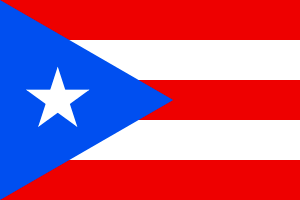

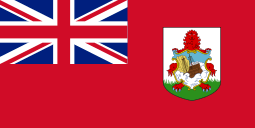
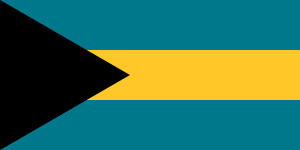
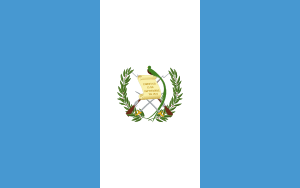

South America






Europe


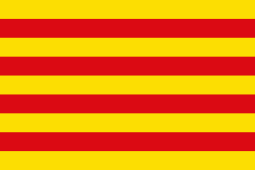



.svg.png)

.svg.png)









.svg.png)
Asia




.svg.png)


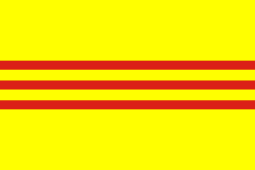



Africa
.svg.png)



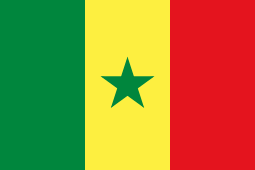
.svg.png)
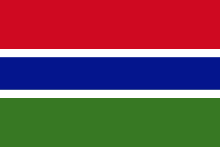


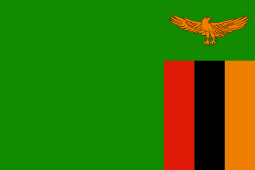
Oceania



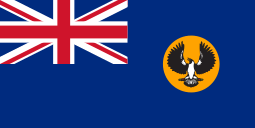

.svg.png)
Note
A Presidents in Singapore are not allowed to belong to any party.
B The predecessors of the ÖVP are the Christian Social Party ruled from 1907 to the renaming 1933 and the Fatherland Front ruled from 1933 to the Anschluss 1938.
C The predecessors of the CSU are the Bavarian Patriotic Party ruled from 1869 (won in the Zollparlament election, 1868) to the renaming 1887, the Bavarian Center Party ruled from 1887 to the November Revolution 1918 and the BVP ruled from 1919 to the Machtergreifung 1933 (In 1919, the BVP joined the Zentrum as a CVP.).
See also
References
- 1 2 3 4 5 6 Suttner, R. (2006), "Party dominance 'theory': Of what value?", Politikon 33 (3), pp. 277-297
- ↑ King, Stephen J. (2009). The New Authoritarianism in the Middle East and North Africa. Bloomington, Indiana: Indiana University Press. p. 208. ISBN 978-0-253-35397-9.
- ↑ Mehler, Andreas; Melber, Henning; Van Walraven, Klaas (2009). Africa Yearbook: Politics, Economy and Society South of the Sahara in 2008. Leiden: Brill. p. 411. ISBN 978-90-04-17811-3.
- ↑ "Archived copy". Archived from the original on 2012-04-01. Retrieved 2012-04-01. (in English)
- ↑ Doorenspleet, Renske; Nijzink, Lia (2014). Party Systems and Democracy in Africa. Basingstoke: Palgrave Macmillan. p. 174. ISBN 978-1-137-01170-1.
- ↑ "Botswana's ruling Democratic Party wins general elections". BBC News. BBC. 26 October 2014. Retrieved 22 October 2015.
- ↑ O'Gorman, Melanie (26 April 2012). "Why the CCM won't lose: the roots of single-party dominance in Tanzania". Journal of Contemporary African Studies. Taylor & Francis. 30 (2): 313–333. doi:10.1080/02589001.2012.669566. Retrieved 11 July 2015.
- ↑ https://www.un.org/en/ga/search/view_doc.asp?symbol=A/RES/34/37&Lang=E&Area=RESOLUTION Archived 2015-09-04 at the Wayback Machine.
- ↑ "State of Kansas Governors". TheUS50.com. Retrieved August 26, 2014.
- ↑ "Archived copy". Archived from the original on 2011-03-09. Retrieved 2011-03-06.
- ↑ 2010 Human Rights Report: Samoa, U.S. Department of State, Bureau of Democracy, Human Rights, and Labor, April 8, 2011
- ↑ "Singapore Elections Department - Parliamentary Election Results". Retrieved 9 September 2015.
- ↑ "Singapore Elections Department - 2011 Parliamentary Election Results". Retrieved 9 September 2015.
- ↑ "TURKEY - AKP ushering in 'dominant-party system', says expert". hurriyetdailynews.com. Retrieved 30 May 2015.
- ↑ "Turkey Under the AKP: The Era of Dominant-Party Politics". journalofdemocracy.org. Retrieved 30 May 2015.
- ↑ "Archived copy". Archived from the original on 2014-07-14. Retrieved 2014-06-04.
- ↑ http://anno.onb.ac.at/cgi-content/anno-plus?aid=ost&datum=0007&page=28
- 1 2 3 4 5
- ↑ http://anno.onb.ac.at/cgi-content/anno-plus?aid=ost&datum=0007&page=51
- ↑ http://anno.onb.ac.at/cgi-content/anno-plus?aid=ost&datum=0007&page=17
- ↑ http://anno.onb.ac.at/cgi-content/anno-plus?aid=ost&datum=0007&page=55
- ↑ http://anno.onb.ac.at/cgi-content/anno-plus?aid=ost&datum=0007&page=33&size=45
- ↑ http://www.sueddeutsche.de/politik/landtagswahl-in-sachsen-cdu-sucht-nach-einem-neuen-partner-1.2108781
- 1 2 Formerly its predecessors PCI, PDS and DS
- ↑ http://www.itv.com/news/wales/2017-06-07/labour-are-on-course-to-retain-their-dominance-in-wales-according-to-our-latest-poll/
- ↑ http://www.newstatesman.com/politics/june2017/2017/06/its-no-fluke-poll-labour-heading-landslide-wales
- ↑ https://www.theguardian.com/commentisfree/2016/may/06/welsh-labour-electoral-welsh-voters
- ↑ https://www.theguardian.com/commentisfree/2017/may/19/the-guardian-view-on-the-election-in-scotland-a-pivotal-poll-for-the-snp
- ↑ Canada's 'natural governing party'. CBC News in Depth, 4 December 2006. Retrieved 2012-08-10.
- ↑ https://www.wahlen-in-deutschland.de/buBawue.htm
- ↑ https://www.wahlen-in-deutschland.de/beBawue.htm
- ↑ https://www.wahlen-in-deutschland.de/blSaar.htm
- ↑ https://www.wahlen-in-deutschland.de/wlSaargebiet.htm
- ↑ https://www.wahlen-in-deutschland.de/wrtw1919er.htm
- ↑ https://www.wahlen-in-deutschland.de/buSaarland.htm
- ↑ https://www.wahlen-in-deutschland.de/beSaar.htm
- ↑ https://www.utoronto.ca/ai/learningtolose/participants.html%5Bpermanent+dead+link%5D
- ↑ http://www.ft.com/cms/s/2/f350d9ac-f4fa-11e4-8a42-00144feab7de.html#axzz3pFUtHHx8
- ↑ Cairney, Paul; McGarvey, Neil (2013). Scottish Politics. Houndmills: Palgrave Macmillan Limited. p. 58. ISBN 978-0-230-39046-1.
- ↑ Garnett, Mark; Lynch, Philip (2007). Exploring British Politics. London: Pearson Education. p. 322. ISBN 978-0-582-89431-0.
- ↑ Johari, J. C. (1997). Indian Political System: a Critical Study of the Constitutional Structure and the Emerging Trends of Indian Politics. New Delhi: Anmol Publications. p. 250. ISBN 978-81-7488-162-5.